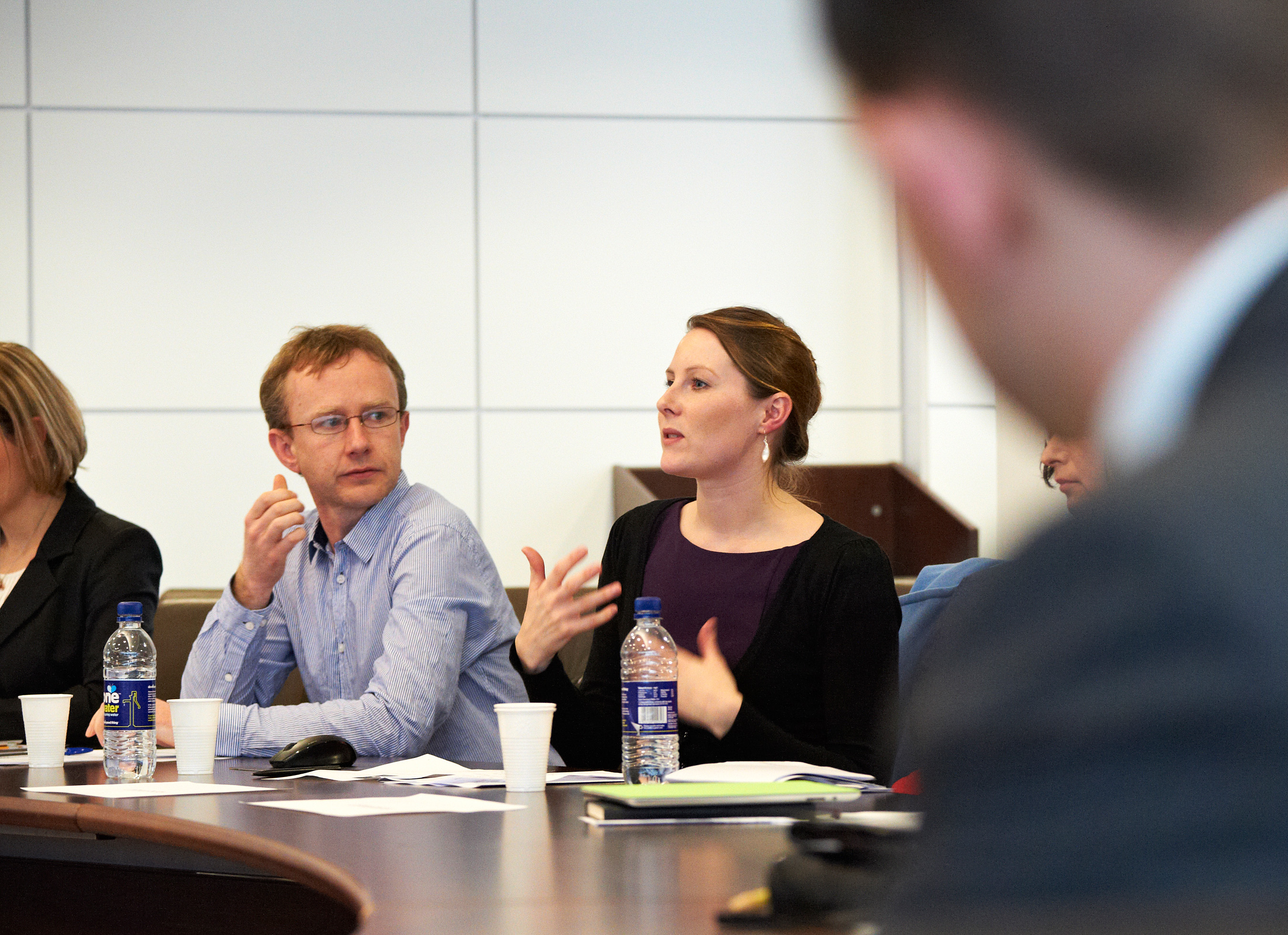current research
broad research areas
- The formation of social identities and the development of norms for social behaviour
- Inter- and intra-group processes
- Proselytizing, religion and intergroup peace
- The psychological processes underlying personal and professional transitions

current collaborators
- Dr Catherine Amiot, University of Quebec at Montreal, Canada
- Dr Ana-Maria Bliuc, University of Sydney, Australia
- Professor Victor Callan, University of Queensland, Australia
- Dr Nicole Gillespie, University of Queensland, Australia
- Dr Girish Lala, Murdoch University, Australia
- Professor Craig McGarty, Murdoch University, Australia
- Dr Neil Paulsen, University of Queensland, Australia
- Dr Catherine Philpot, University of Queensland, Australia
- Professor Tom Postmes, University of Groningen, The Netherlands
- Dr Joanne Smith, University of Exeter, UK
- Professor Debbie Terry, University of Queensland, Australia
- Dr Emma Thomas, Murdoch University, Australia
Please see below for more details about current research council-funded projects.
Pathways to social cohesion and social change: Opinion-based groups and the dynamic formation of identities (Australian Research Council Discovery Project, 2011-2014).
Project conducted in collaboration with Prof. Craig McGarty (Murdoch University), Dr. Ana-Maria Bliuc (University of Sydney), and Prof. Tom Postmes (University of Groningen).
“There is nothing as powerful as an idea whose time has come.” (adaptation of Hugo, 1852, The history of a crime)
What makes timely ideas powerful? In this project we start with the proposition that ideas are most powerful when they are adopted by groups of people who are committed to take action based around those ideas. Although this can involve existing groups taking on new ideas, the possibility that ideas can form the nucleus for the formation of new social groups has received less attention. In this project we aim to fill that gap by demonstrating the social psychological mechanisms of group formation based on ideas. The cornerstone of this approach is that disagreement can, of itself, help to create new group boundaries, and shared identities, within the social structure. We argue that the formation of such groups is fundamental to the social psychological processes that drive action both to resist and support social change. Importantly, we argue that the degree to which an opinion-based group successfully achieves alignment with a positively valued social category (such as a nation) should be translated into the degree that that group is politically successful. By focusing on opinion-based groups in a series of studies we aim to identify the factors that explain commitment to political action, and understand why some political parties and social movements are more successful than others. We have published related research in the European Journal of Social Psychology, the British Journal of Social Psychology, the Journal of Social Issues and the International Review of Social Psychology.
Newcomer socialisation: The development of organisational identification over time (Australian Research Council Linkage Project 2008-2011, with Brisbane City Council)
Project conducted in collaboration with Prof. Victor Callan, Prof. Debbie Terry (University of Queensland), Dr Catherine Amiot (University of Quebec at Montreal) and Dr. Joanne Smith (University of Exeter).
In the first few months of employment, what makes one new employee want to remain with an organisation, and another to resign? Dating back to the early 1970s, researchers have found that when an individual identifies with a social group, they become more committed to the group and they are less likely to leave of their own volition. However, research is yet to identify the psychological processes that lead an individual to identify with their new organisation in these early stages of their employment, and so makes them more committed to stay. Moreover, untangling these psychological processes is complicated by evidence that employees display multiple levels of identification, for example with their work team and with their organisation. Furthermore, identification is a multi-dimensional construct with several sub-components, some of which may be more significant to newcomer identity development than others. Focusing on the factors that can promote the development of multi-component identification over time at multiple levels, in this research we provide both theoretical advances into newcomer socialisation, and also insight into practical solutions that employers can use to ease the transition phase for both the organisation and new employees.
This long-term project involved conducting two longitudinal studies with new employees. We currently have one paper in press at the British Journal of Management, and a further two papers in various stages of preparation.
Managing key professional transitions in the health sector (Australian Research Council Linkage Project, 2011-2015; with the Royal Brisbane and Women’s Hospital).
Project conducted in collaboration with Prof. Victor Callan, Dr. Nicole Gillespie, and Dr. Neil Paulsen (The University of Queensland)
This project examines the processes underlying two major, inter-related professional transitions and the impact that these transitions have on individual, organisational and stakeholder outcomes. First, we examine how new, highly skilled professionals (e.g., clinicians) make the transition to a new organisation at the start of their careers. Part of this initial transition process involves developing shared identification and trust with colleagues in numerous professional groups with potentially competing objectives within a highly bureaucratic organisation (e.g., one’s professional discipline, team, department, management). A second key transition for some, but not all employees, is the transition from being a relatively independent technical expert to being a leader and manager of a work team, unit or larger department. These leaders are likely to view success as determined by working interdependently with other units, and by balancing specialist, administrative and managerial objectives. In the current project, we see these two transitions as being inter-connected. That is, those employees who successfully make the first transition and develop inter-professional trust and identification are more likely to express interest in being future managers and leaders in the organisation, and demonstrate an ability to work cooperatively across professions and balance the potentially competing professional values and objectives embedded in specialist and managerial identities. In this project, we propose that these transitions involve processes of identity integration, coupled with related processes of trust development. Pilot research began in July 2011.